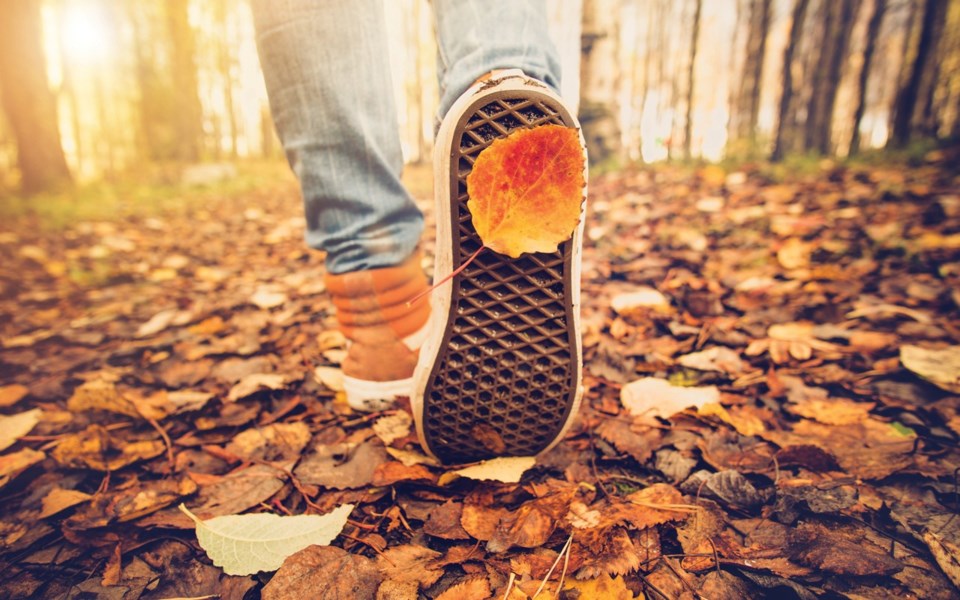Most of my life, I've been in a hurry to get to the end of the task, the top of the heap, the other side. Then, somewhere approaching the midway point of life, I clued into the fact that racing to get to the end was not that smart, and I should start thinking about ways to savour the experience instead. Quality, not velocity, right? Decelerate a goddamn second here, and look around.
It was a big a-ha moment that took about seven years of obsessive mulling and slowing down to really truly absorb. Seven years as a recovering workaholic. Seven years proving that even the most urgent things can't be rushed. (God help us on the climate change front. I guess that's the next chapter of inquiry: How to hurry change up when it really counts.)
Sending my kid off to kindergarten, after seven years of workshopping this velocity business, of schooling myself, I thought I was perfectly poised to enjoy this marvellous and hard-won balance of fast-and-slow, of deadlines-and-chill-time, and apart from a little hand-wringing, all would be well.
No one warned me to anticipate a tidal wave of existential grief.
Finally, I had the space to smell the roses, read a book, chase an idle idea, without the distraction of a small person to tend, and I found myself awash in a sadness for—well, for nothing in particular—but everything. Every new beginning demands the end of something else. It's a package-freaking deal. So I was unexpectedly hauling up a big net flip-flopping with the by-catch of the lost possibilities of my 20s and 30s, the funerals I didn't attend, the country I don't live in, the chats with old friends that are stymied by time zones and impossibly busy lives, recklessness and frivolity I didn't embrace, a wardrobe of music festival onesies I never acquired, of all the lost and dead things.
I should have known.
It was raining incessantly, for starters.
Plus, when you've been running hard and you finally really truly slow down, things catch up with you. Like, every thing.
One day last winter, I dusted off an expired pass to the Scandinave Spa that had been pinned to my noticeboard for 18 months that the staff kindly honoured. A spa day! At last! What a treat! I had carved out the time for a relaxing indulgent day of self-care.
It was freaking gruelling.
The Scandinave's "hydrotherapy" schtick is to chase a 15-minute heat session (in either the sauna, steam room or hot tub) with a dip in 13-degree cold water, followed by 15 minutes of relaxing. And repeat.
Apart from the hot tub, (which feels like a bath, took the least gumption, and offered the least reward, endorphin-wise) the practice is actually kind of hard.
The steam room was uncomfortably hot. It was hard to hold my mind still, hold myself in place, not just get up and say, forget this, this isn't any fun. The cold plunge was hard. I had resistance to the entire idea. Who wants to immerse themselves in cold, cold water? The cold hurt parts of my body that I prefer not to have hurt. I wanted to scream.
But then my skin had this vital sensation—just this side of tingling. And suddenly I wasn't cold. And then I felt a little hit of exaltation.
The next step in the process is to spend 15 minutes somewhere chilling out. People were napping. Or reading books. I twitched. Fidgeted. Tried to be quiet. Wondered what I would do if I had a good idea and couldn't write it down. Looked at the clock. Looked at the clock again. How much time were we meant to do this for? I worried that I wouldn't be able to step up for the cold plunge again.
It took 10 minutes to calm down and then I finally started to feel it. Relaxation.
It doesn't just come.
In a world where alcohol, weed and painkillers are easily available, offering no-effort "relaxation" is something we are out of the practice of working for. Out of practice of being a little bit uncomfortable, of being too hot, too cold, too still, of being without a shiny distraction, of just being mortal bodies full of loss and longing.
I did three rounds of hydrotherapy. It didn't ever get easier. But it started to feel like something I could get used to.
"Fall is a time of transition," said Anngela Leggett, at the opening of our yoga class last week. "It can be emotional."
That was it. No hot tip. No pithy little pep talk. Just a straight-up acknowledgement. Got emotion? Uh-huh. Seasons change, and it might get uncomfortable.
And then, the sun came out, and burned off my existential crisis for what it was, as insubstantial as morning fog, and I was reminded that this is how it all unfolds. As a process. Grief. Love. The work. Parenthood. It isn't a checklist, a neat tidy series of steps, a sequence, a formula. What's needed is a willingness to sit until the fidgets and twitches still, to endure the big waves that knock you under, to breathe into the discomfort until it throttles back and something else enters, quietly, sheepishly, shyly, ready to take you by the hand and lead you out into the promise of what awaits. The new beginning.
The Velocity Project: how to slow the f*&k down and still achieve optimum productivity and life happiness.




